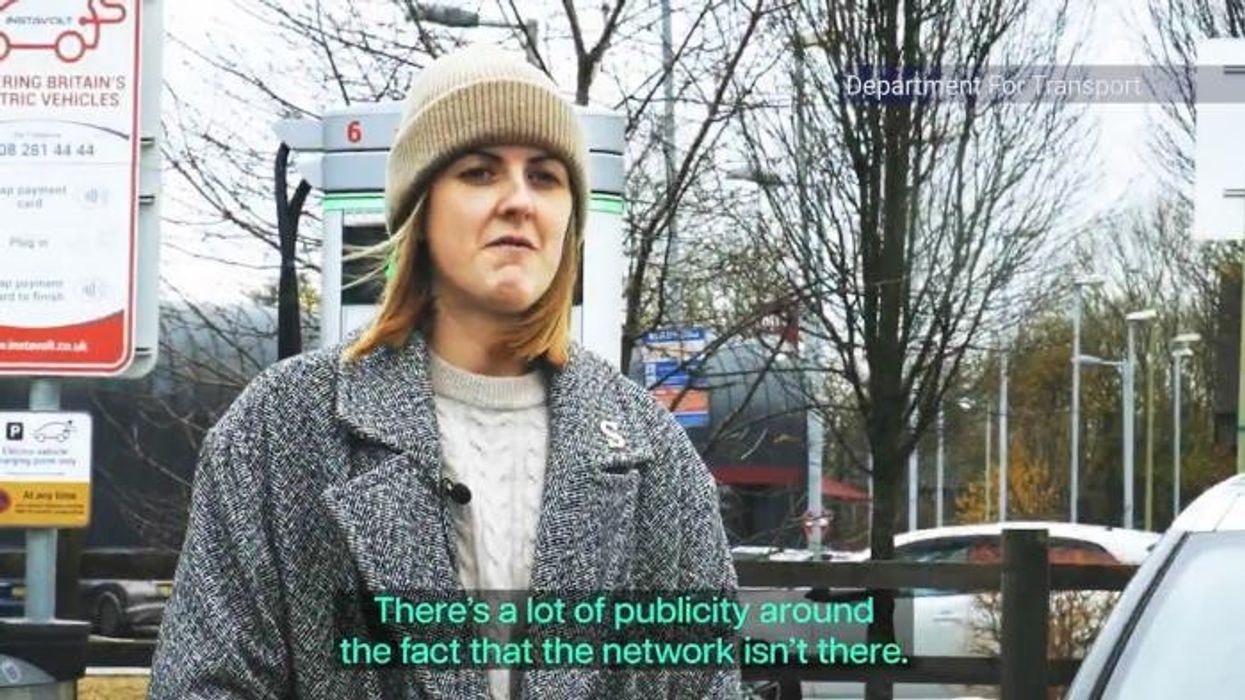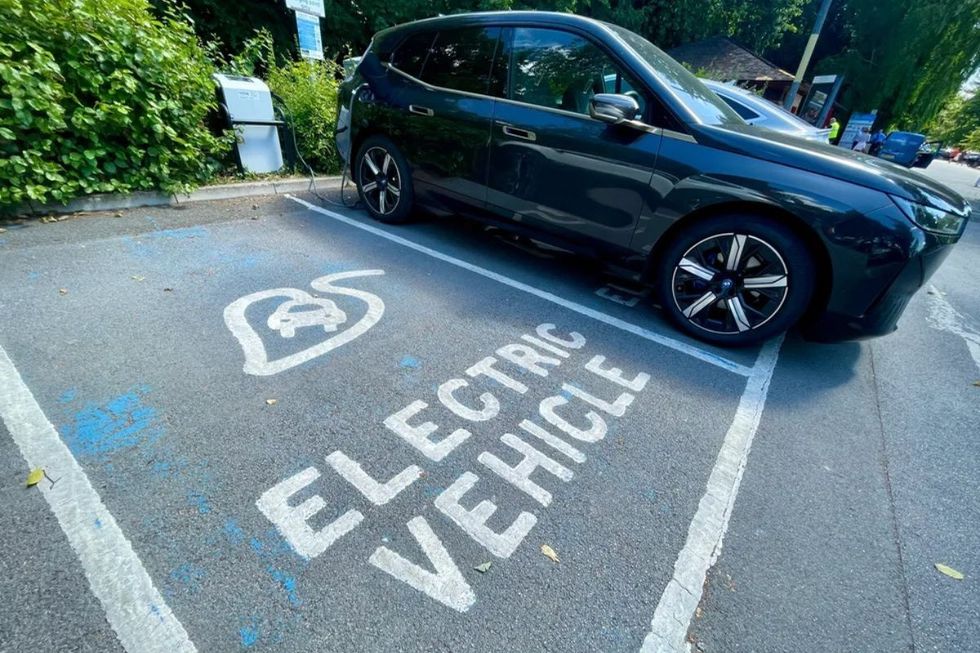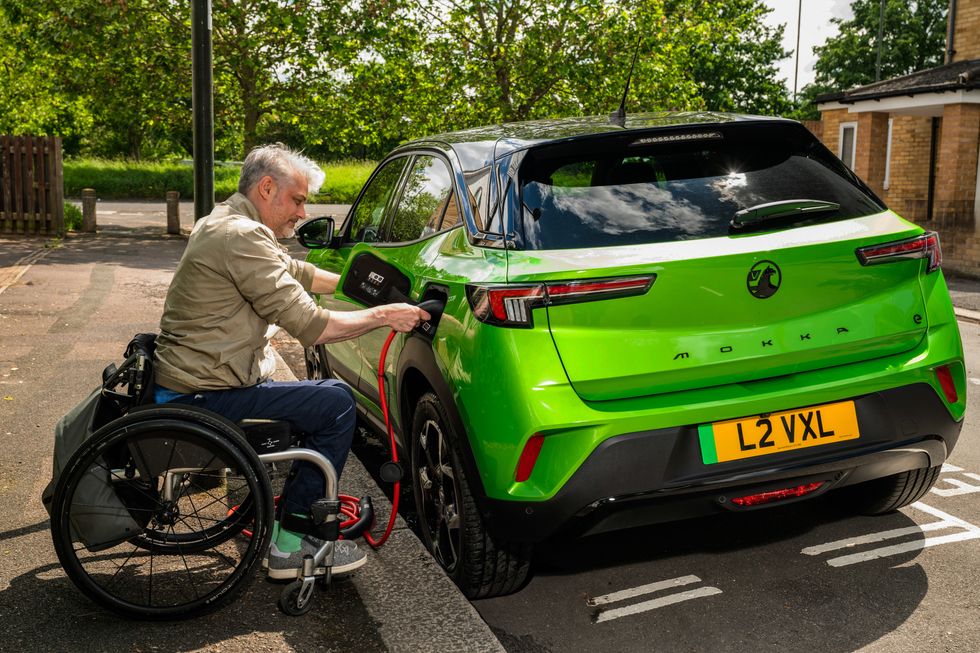Millions of drivers risk being 'left behind' in electric car transition amid rise of 'concerning' trend

WATCH: The Department for Transport announces measures to make it cheaper to install EV chargepoints
|DEPARTMENT FOR TRANSPORT

There are more than 82,000 public electric vehicle chargers around the UK
Don't Miss
Most Read
New research has revealed that more than a third of UK councils fail to provide any on-street electric vehicle charging infrastructure suitable for disabled drivers, raising serious concerns about accessibility in Britain's transition to electric motoring.
Freedom of Information requests submitted by Vauxhall found that 111 out of 289 responding councils have no on-street charge points specifically adapted for disabled drivers or compliant with national accessibility standards.
The findings emerge despite a 27 per cent year-on-year increase in overall on-street chargers across the UK.
With 1.35 million disabled drivers expected to rely on public charging infrastructure by 2035, the lack of accessible facilities represents a significant barrier to EV adoption.
Do you have a story you'd like to share? Get in touch by emailing motoring@gbnews.uk

Experts have called for more to be done to make EV chargers accessible for drivers with disabilities
|GETTY
The FOI research examined whether councils had installed charge points following the British Standards Institution's PAS 1899:2022, a national accessible charging standard co-sponsored by the Motability Foundation and the UK Government.
The investigation forms part of Vauxhall's Electric Streets of Britain initiative, which supports the 40 per cent of UK households lacking off-street parking.
Concerningly, the proportion of on-street chargers adapted for disabled drivers has remained static at just 2.2 per cent, unchanged from 2024 figures.
This stagnation comes as Department for Transport data shows the broader charging network expanding rapidly, with a 27 per cent increase in on-street chargers recorded by the end of April.
Steve Catlin, managing director of Vauxhall, expressed concern about the findings, saying: "Limited access to public charging is known to be a barrier for Britain's disabled motorists wishing to switch to EVs, particularly those who have no home charging capability.
"The number of councils who do not provide charging provisions specifically for those with disabilities, as highlighted in our new research, is concerning - we need to ensure that all drivers, wherever they are, can easily find and access charge points if we are hoping to bring all drivers on the UK's electrification journey."
Data from the Motability Scheme's EV Transition Tracker reveals the scale of the challenge, with 65 per cent of Scheme customers saying they will only switch to electric vehicles when they have no other choice.
Nearly half of the customers surveyed cited difficulty finding nearby public charging points as a barrier to adoption.
LATEST DEVELOPMENTS:
The Public Accounts Committee recently warned that charge points positioned too close to kerbs or using heavy cables create obstacles for wheelchair users.
The committee concluded that installing infrastructure without considering accessibility standards risks developing a charging network that fails to meet disabled drivers' needs.
With over 16 million disabled people in the UK, ensuring equitable access to charging infrastructure has become increasingly urgent as the 2035 ban on new petrol and diesel cars approaches.
Andrew Miller, chief executive of Motability Operations, added: "We need to make sure disabled people are not left behind as the UK transitions to EVs.

Vauxhall is warning that more than one million disabled drivers could be left behind in the EV transition
|VAUXHALL
"We hear from our customers every day and many of them tell us the same thing. They're struggling with the change, and public charging is their biggest worry.
"This uncertainty is stopping people from making the switch and could lead to a cliff-edge transition that leaves thousands of disabled people with no access to mobility."
Vauxhall's Electric Streets of Britain initiative, launched in 2023 in partnership with charging operators including char.gy, Connected Kerb and SureCharge, and has established a national database where motorists can register their need for on-street residential EV chargers.
More than 12,000 streets have been logged as requiring on-street charging through electricstreets.co.uk, with over 150 drivers specifically requesting disabled-access charging facilities.










